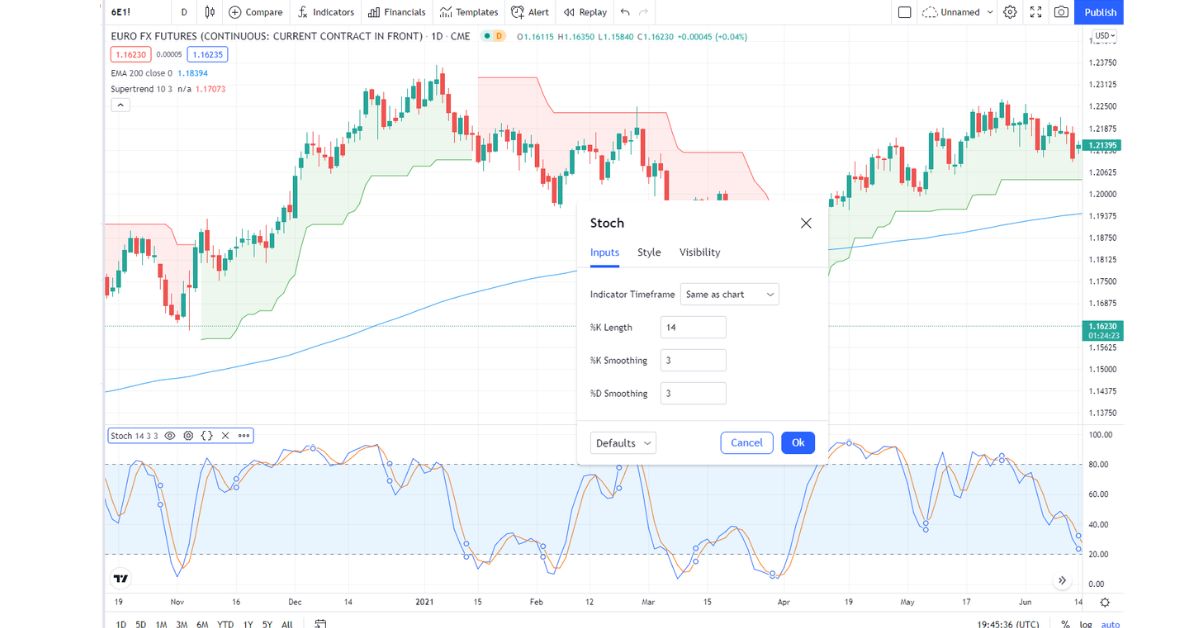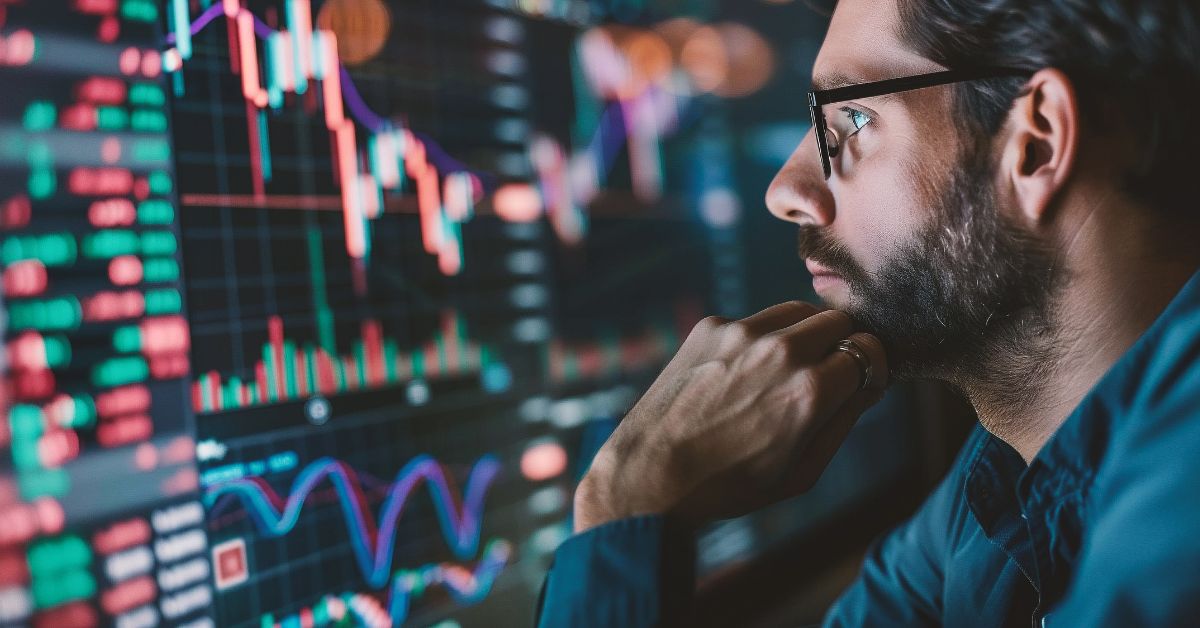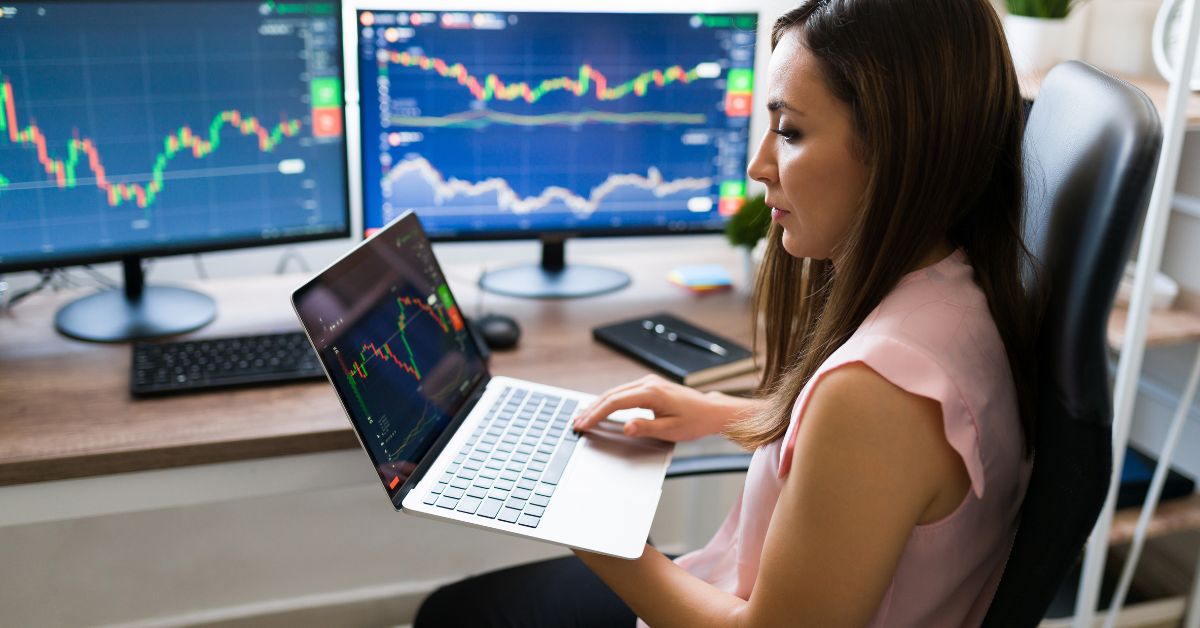Futures trading is a dynamic and potentially lucrative venture. However, success in this field is about more than just strategy or market knowledge. An often overlooked yet crucial factor is trading psychology. Mastering your mindset can greatly improve your trading.
In this blog, we will explore the psychology behind futures trading. We’ll delve into common psychological pitfalls and strategies to overcome them. You’ll better understand how to keep a positive, resilient trading mindset. This knowledge can transform your trading journey.
What is Trading Psychology in Futures Trading?

Trading psychology refers to the mental state and emotions that influence trading decisions. It’s a critical aspect of successful futures trading. Emotions like fear, greed, and hope can cloud judgment, leading to impulsive decisions. These emotions often result in negative trading outcomes.
In futures trading, psychology will play a significant role. Traders operate in high-pressure, fast-paced environments. Staying calm and rational is crucial for success. Common psychological pitfalls include fear of missing out (FOMO) and loss aversion. These can lead to poor trading choices.
Recognizing these psychological tendencies is the first step toward improvement. Understanding your emotional triggers helps you manage them better. Developing a healthy trading mindset takes time and effort. However, it’s a worthwhile investment for long-term trading success.
Key Psychological Factors in Futures Trading
Success in futures trading depends on understanding the psychological factors involved. Emotions, biases, discipline, and patience are vital in trading. They affect decisions and outcomes. Managing these factors effectively can significantly enhance a trader’s performance.
Emotions in Trading
Emotions play a significant role in trading. Fear can prevent traders from taking necessary risks, leading to missed opportunities. Greed can drive traders to overextend their positions and take excessive risks.
Hope can cause traders to hold onto losing trades, expecting a turnaround that may never come. Regret can lead to revenge trading, where traders impulsively try to recover losses, often worsening the situation. Managing these emotions is vital for effective trading.
Cognitive Biases
Cognitive biases are systematic errors in thinking that affect decisions. Confirmation bias leads traders to seek information that supports their beliefs, often ignoring contradictory data. Overconfidence bias makes traders underestimate risks, leading to excessive risk-taking.
Loss aversion causes traders to hold onto losing positions longer than necessary, driven by the fear of realizing a loss. Recognizing and addressing these biases can significantly improve decision-making in trading.
Discipline and Patience
Discipline and patience are crucial for successful trading. It involves sticking to a trading plan despite emotional impulses, ensuring consistency in approach. Patience is the ability to wait for the right trading opportunities without rushing into trades prematurely.
Both qualities help traders avoid impulsive, poorly thought-out trades. Developing discipline and patience requires practice and self-awareness, but they are essential for long-term success in futures trading.
Managing these key psychological factors helps traders stay focused and make better decisions. Developing awareness and strategies to counteract emotional influences can significantly enhance trading performance.
How to Develop a Trading Mindset in Futures Trading

Developing a healthy trading mindset is essential for achieving long-term success in futures trading. It involves cultivating self-awareness, managing stress, and committing to continuous learning. A positive mindset helps traders navigate challenges effectively and stay resilient during market fluctuations.
Self-Awareness
Self-awareness is crucial for recognizing emotional triggers and behavioral patterns in trading. It involves understanding your strengths and weaknesses, which enhances decision-making. Reflecting on past trades helps identify recurring patterns, biases, and mistakes. This process of introspection enables traders to learn from their experiences and avoid repeating errors.
Regular self-assessment can also facilitate adjustments to strategies and improve overall performance. By increasing self-awareness, traders can develop better emotional regulation and make more informed decisions.
Stress Management
Effective stress management is vital in trading due to the high-pressure nature of the markets. Stress can lead to emotional decision-making, which negatively impacts trading performance. Techniques such as deep breathing exercises, meditation, and mindfulness can help maintain calm and focus during trading sessions.
Taking breaks when needed allows for mental refreshment and reduces fatigue. Additionally, finding healthy outlets for stress, such as physical exercise or hobbies, supports emotional well-being. By managing stress effectively, traders can improve their clarity of thought and overall decision-making abilities.
Continuous Learning
Continuous learning is key to maintaining a successful trading career in the ever-evolving financial markets. Staying updated on market trends, economic news, and new trading strategies is essential for success. Engaging with educational resources, such as books, webinars, and online courses, can enhance traders’ knowledge and skills.
Trading forums and networking with traders provide valuable insights and diverse views. A commitment to continuous learning will help traders. It will let them adapt to changing markets and improve their strategies.
Traders can build a strong mindset by being self-aware. They should manage stress and keep learning. This will make them resilient and adaptable. This mindset boosts performance and success in competitive futures trading.
Strategies to Improve Trading Psychology in Futures Trading

Improving trading psychology is crucial for long-term success in futures trading. Traders can use effective strategies to manage their emotions. This will help them make better decisions. Here are some key strategies to improve trading psychology:
Setting Realistic Goals
Setting realistic goals is vital for maintaining a healthy mindset in trading. Traders should define both short-term and long-term objectives. Short-term goals may include learning new strategies or practicing discipline, while long-term goals focus on overall profit targets.
Establishing achievable goals helps prevent frustration and discouragement. By tracking progress, traders can celebrate small victories, which boosts confidence and motivation.
Risk Management
Effective risk management is essential for emotional stability. Traders should determine how much capital they are willing to risk on each trade. This includes setting stop-loss orders to limit potential losses.
By managing risk appropriately, traders can reduce anxiety and focus on executing their trading plan. Understanding that not every trade will be profitable helps cultivate a more rational mindset.
Building Resilience
Building resilience is crucial for coping with the inevitable ups and downs of trading. Resilient traders view setbacks as learning opportunities rather than failures. Developing a growth mindset helps traders adapt and improve their strategies over time.
Engaging in self-care practices, such as exercise and mindfulness, can also bolster emotional strength. Resilience enables traders to maintain a positive outlook and stay committed to their trading journey, even in challenging times.
Practical Tips for Maintaining a Positive Trading Psychology

Maintaining a positive trading psychology is essential for long-term success in futures trading. Here are some practical tips to help traders stay mentally strong and focused:
1. Establish a Routine
Creating a consistent trading routine enhances focus and reduces anxiety. Start by setting specific times for market analysis and trade execution. A well-defined schedule helps establish a sense of normalcy in your trading.
Consistency in your routine prepares your mind for trading activities. This predictability reduces stress and allows for better decision-making.
2. Limit News Consumption
While staying informed is important, excessive news consumption can lead to heightened anxiety. Limit your exposure to financial news, especially during trading hours. This approach minimizes emotional reactions to sudden market fluctuations.
Avoid checking news updates constantly, as this can create unnecessary stress. Focus instead on your trading strategy and execution, which promotes clarity.
3. Practice Self-Care
Incorporating self-care practices into your daily routine significantly enhances emotional well-being. Engage in activities that promote relaxation and reduce stress, such as exercise and meditation.
Setting aside time for hobbies or interests outside trading fosters a balanced life. Prioritizing your mental and physical health builds resilience and focus in trading. Healthy habits lead to better decision-making and performance.
4. Take Breaks
Regular breaks during trading sessions are crucial for maintaining mental clarity. Stepping away from your screen allows for reflection and reduces mental fatigue.
Use these breaks to stretch, hydrate, or take a short walk. Taking time away helps reset your mind and avoids burnout. A refreshed mind is better equipped to handle market challenges effectively.
5. Reflect and Adapt
Regularly reviewing your trades and strategies promotes continuous improvement. Reflect on your successes and failures to identify patterns in your trading behavior. Be open to adapting your approach based on your experiences.
This practice encourages a growth mindset and builds confidence in your decision-making. Continuous reflection helps refine your trading strategy over time.
6. Avoid Overtrading
Overtrading can lead to emotional exhaustion and poor decision-making. Set limits on the number of trades you execute each day or week. Focus on quality trades rather than quantity, which promotes discipline.
Stick to your trading plan to avoid chasing losses or reacting impulsively. Limiting trades helps maintain focus and enhances overall performance.
7. Seek Support
Engaging with a community of traders provides valuable support and motivation. Join online forums, social media groups, or local trading clubs to share experiences. Learning from others can offer fresh perspectives and insights.
Having a support network fosters accountability and encourages personal growth. Collaboration with peers can enhance your trading journey.
Follow these tips in your trading. They will boost your trading mindset. A healthy mindset boosts emotional resilience. It helps traders face the futures market’s challenges with confidence. Adopting these strategies will lead to improved trading performance and long-term success.
FAQs
What is the importance of trading psychology in futures trading?
Answer: Trading psychology is crucial for success in futures trading. It influences decision-making, emotional control, and discipline. A positive mindset helps traders stick to their strategies, manage risks effectively, and cope with market volatility.
Understanding trading psychology can lead to better performance and improved profitability. Traders who focus on their mental well-being tend to make more rational decisions, which is essential in a competitive environment.
How can I control my emotions while trading?

Controlling emotions while trading requires self-awareness and discipline. Start by recognizing emotional triggers and patterns in your trading behavior. Establish a trading plan with clear rules for entering and exiting trades.
Practice mindfulness techniques, such as deep breathing or meditation, to stay calm. Taking regular breaks and maintaining a healthy work-life balance also help reduce stress and emotional reactions during trading sessions.
What are some common cognitive biases in trading?
Common cognitive biases in trading include overconfidence, loss aversion, and confirmation bias. Overconfidence can lead to taking excessive risks based on inflated beliefs in one’s abilities.
Loss aversion causes traders to avoid losses more than seek gains, impacting decision-making. Confirmation bias occurs when traders only acknowledge information that supports their existing beliefs. Recognizing these biases can help traders make more objective decisions.
How can I develop a growth mindset in trading?
Developing a growth mindset in trading involves embracing challenges and learning from mistakes. Start by viewing losses as opportunities for improvement rather than failures. Seek feedback from peers or mentors to gain new perspectives on your trading strategies. Engage in continuous learning through courses, books, or webinars related to trading psychology.
Practice self-reflection regularly to assess your progress and adapt your approach. Cultivating a growth mindset enhances resilience and encourages a more positive outlook in the trading journey.
Read More: Why Use Futures Instead Of Spot?
Final Thought
Mastering trading psychology is vital for success in futures trading. Traders must know emotions, biases, and discipline. This helps them make better decisions. A healthy mindset and good strategies can boost your trading. They will improve your performance and resilience. A strong mind and tech will ensure your trading success.



